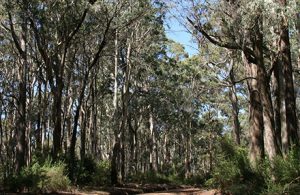
Data obtained from a specialist economic impact consultant jointly engaged by the Wellington and East Gippsland Shire councils indicates that around 1110 jobs would be lost if native forest logging ceased immediately in both shires. Source: Timberbiz
This number includes direct and indirect jobs, ranging from forestry contractors to transport company workers, through to employees at shops where timber workers spend their money.
The Mayor of Wellington Shire and chair of the Native Timber Taskforce, Cr Garry Stephens, said that in Wellington Shire alone this could have a devastating impact on the local economy, as forestry is a major employer.
He said that in particular, the towns of Heyfield and Yarram would bear the brunt of this impact and it presents a significant challenge for local government to make the best of a difficult situation.
Wellington Shire Council has requested that the Victorian Government share the data and scientific basis on which the native timber phase-out decision was made and awaits a considered response from the government. Communities have a right to know and understand the basis for the decisions which affect their lives.
“We expect better of the government out of respect for local communities,” Cr Stephens said.
Wellington Shire Council supports Timber Towns Victoria and the CMFEU in wanting to retain the jobs of timber workers.
The East Gippsland Shire also wants to ensure that any industry restructure places communities at the centre of decision-making, that resources are adequate, and that no one is left behind.
“Timber workers have unique forestry skills, expertise, knowledge, and equipment that is often used in a first response to fire events,” Cr Stephens said.
“If timber jobs are lost, it is hoped that their skills and machinery are able to be retained and used under such circumstances and that contractors are afforded other meaningful work within the forest industry sector.”
Wellington Shire Council has also sought greater detail from Victorian Government officials about the transition from the harvesting of native hardwood forests to hardwood plantations.
The council is not convinced that there is sufficient supply of hardwood or softwood to enable a smooth transition, especially with the recent impacts of massive bushfires.
The Native Timber Taskforce strongly recommends that the Victorian Government:
- Provides the data and scientific evidence that underpinned the native timber phase-out decision.
- Plants more hardwood plantations with suitable species, to ensure long-term wood supply needs are met and jobs are maintained.
- Ensures an appropriate level of resourcing exists to support communities affected by this decision to the extent that no one is left behind.
- Works with communities to identify and implement job creation schemes in new and existing industries to minimise the impacts of the decision on affected communities.
- Does not support the import of hardwood from non-certified overseas sources that generally have lower compliance standards.
The report comes as the Victorian Premier Daniel Andrews continues to refuse to release the science underpinning his Government’s claim that native forest logging is unsustainable and must be phased out by 2030.
The Weekly Times reported this week that last year Wellington Shire lodged Freedom of Information requests with the Premier and his then Agriculture Minister Jaclyn Symes, requesting copies of all scientific documents on which the government relied to conclude native forest logging was unsustainable, as well as any other documents underpinning the decision.
A Wellington Shire spokesman said the Government responded by stating no documents relating to the shires request could be identified and that other documents were Cabinet in Confidence.
Wellington Shire Council has now appealed to the Office of the Victorian Information Commissioner to gain access to the documents, given the impact of the phase out on Gippsland.
“Wellington Shire Council has requested that the Victorian Government share the data and scientific basis on which the native timber phase-out decision was made,” Mayor Garry Stephens said.
“Communities have a right to know and understand the basis for the decisions which affect their lives. We expect better of the government out of respect for local communities.”





